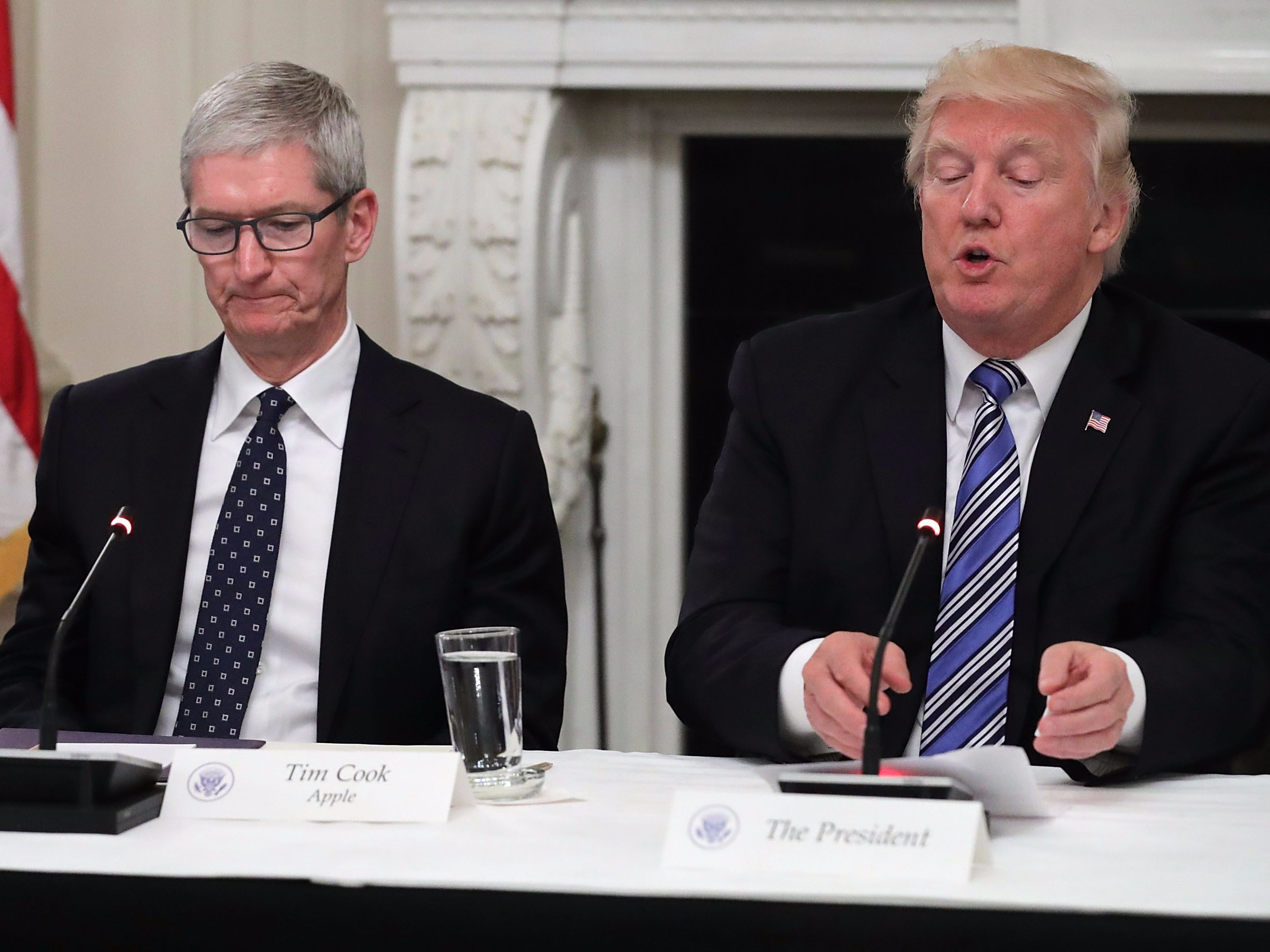- Trump said in an interview with The Wall Street Journal that he could put a 10% tariff on iPhones and Chinese electronic goods.
- Apple’s stock fell during after-hours trading following the remarks.
President Donald Trump has threatened to put a 10% tariff on the iPhone and other consumer electronics, and markets have reacted sharply.
Apple stock dropped by about $2.50, or over 1.5%, in after-hours trading.
Trump discussed the additional tariffs in an interview with The Wall Street Journal. Here’s the relevant passage from The Journal story:
In an interview with The Wall Street Journal, Mr. Trump said that if negotiations don’t work out, he would also put tariffs on the rest of Chinese imports that are currently not subject to duties.
“If we don’t make a deal, then I’m going to put the $267 billion additional on,” at a tariff rate of either 10% or 25%, Mr. Trump said.
…
[Trump] said the tariffs could also be placed on iPhones and laptops imported from China. The administration has been worried about a consumer reaction should such items be subject to levies.
“Maybe. Maybe. Depends on what the rate is,” the president said, referring to mobile phones and laptops. “I mean, I can make it 10%, and people could stand that very easily.”
Apple, which manufactures most of its products in China, had previously been concerned that the Apple Watch, AirPods, and other wireless gadgets might be affected by a round of tariffs on Chinese goods. However, when a final list came out in September, Apple’s gadgets were spared. Those tariffs have already gone into effect.
But if import taxes are imposed on Apple's crown jewel, the iPhone, as Trump threatened, the price of the popular smartphone could increase, or sales could be hurt. Apple CEO Tim Cook has previously said he doesn't think the iPhone will get a tariff on it, and he maintains a back channel to key White House economic staff.
Cook has said he disagrees with Trump's tariffs and that they show up as "a tax on the consumer."
"Our view on tariffs is that they show up as a tax on the consumer and wind up resulting in lower economic growth and sometimes can bring about significant risk of unintended consequences," Cook said during an earnings call earlier this summer.
Apple declined to comment.

